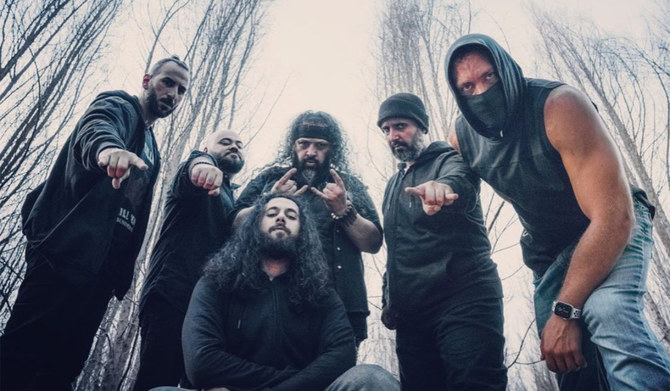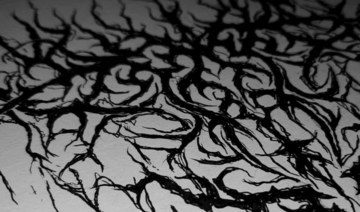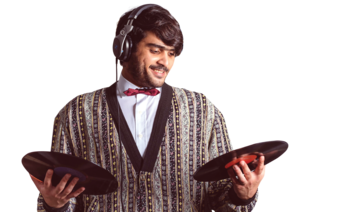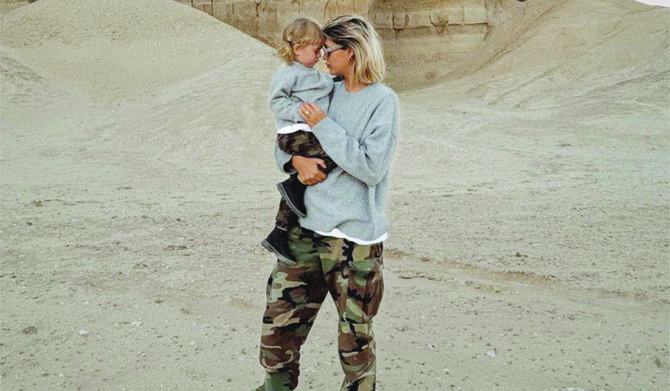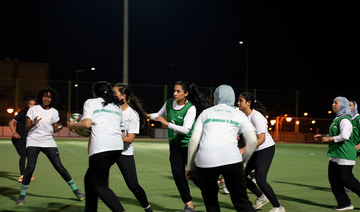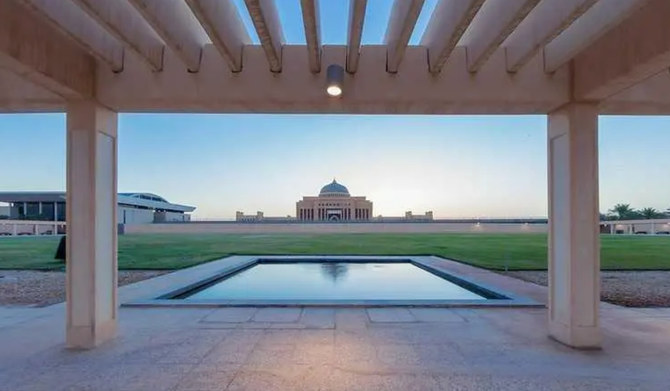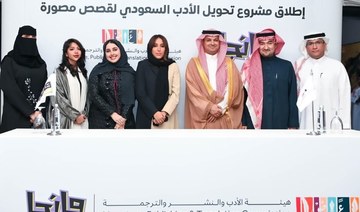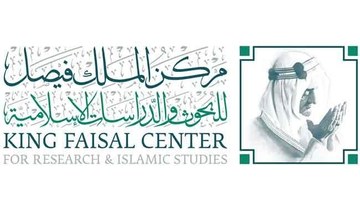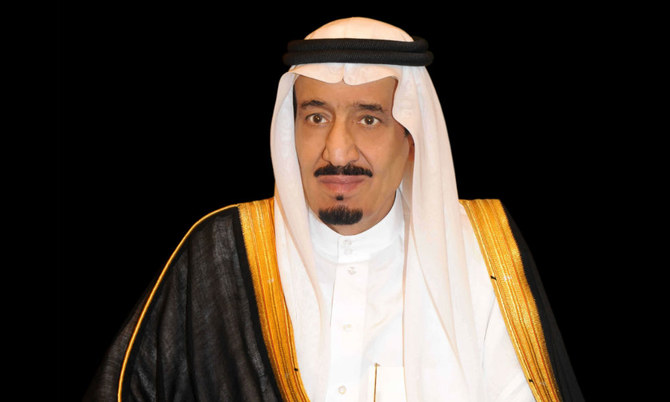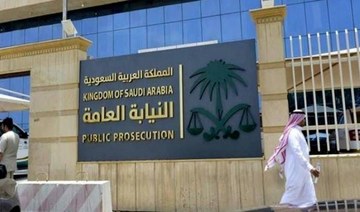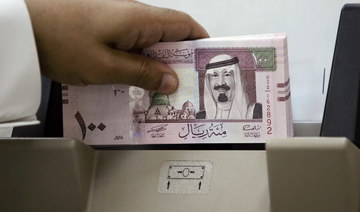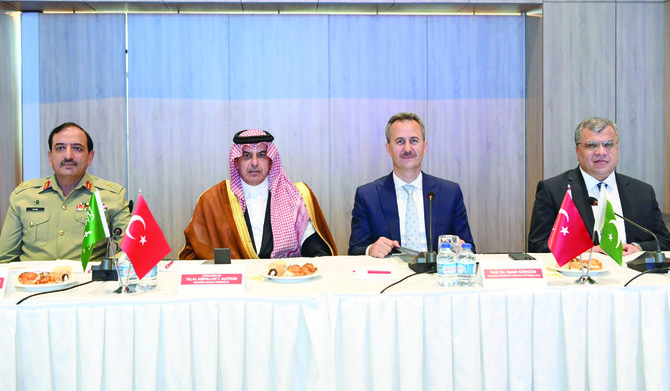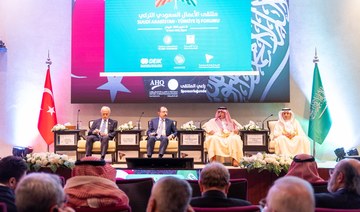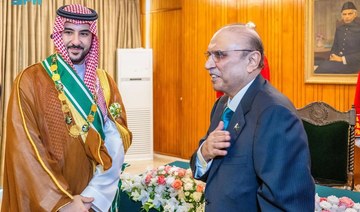DUBAI: With Gulf countries importing almost 90 percent of the food they eat, Saudi Arabia is looking at innovative techniques to safeguard food security, ranging from the use of vertical farms to unlocking the potential of unexplored plant species.
Experts who gathered in Dubai at Gulfood and in Abu Dhabi at the Milken Institute MENA Summit spoke about the risks to the Gulf’s food security as the level of food imports continues to rise.
“What we see is a big macro-trend in terms of the agricultural sector,” said Soud Ba’alawy, founder and executive chairman of Enspire, which helps governments achieve long-term economic growth.
“From that angle, we see a huge opportunity for technology in agriculture — you have big companies in the US doing a good job in using big data in farming, and there are big opportunities in the Middle East for enclosed environments and creating vertical farms,” he said.
With only 30 percent of the world’s available land deemed suitable for agriculture and experts warning of an increasing threat to soil quality, the experts called for an urgent focus on city farming to cut down the supply chain, and improve the quality of food and nutrients.
“It could be a big sector for growth,” Ba’alawy said at the summit last month. “Many wealth funds are starting to talk about agribusiness, and it’s going to grow because everyone is becoming cautious about the food we eat. Many sovereign wealth funds in Saudi Arabia, the UAE and Oman are thinking about how to create an opportunity to re-export food, too, so we will see a lot more investments going into this.”
According to the Journal of the Saudi Society of Agricultural Sciences last October, land and water are such major limiting factors in agricultural production that, by 2050, the Kingdom is expected to import all of its domestic needs.
However, land and water-saving technologies, such as hydroponics and greenhouse farming, seawater harvesting — turning seawater into freshwater for irrigation — and the use of salt-tolerant plants to grow food, have the potential to help.
Some projects envisage using automation, biochemistry and tissue re-engineering, or developing cultured meat from cells. The process involves in vitro culture of animal muscle tissue rather than rearing whole animals.
Just, a San Francisco-based food manufacturing company, is turning to nature by producing plant-based eggs sold globally from its labs.
“We don’t need to overcomplicate food,” said Josh Tetrick, its CEO and co-founder. “The tools of the current food system make it hard for food to be good and sustainable, and for people to eat well. But there are tools available.”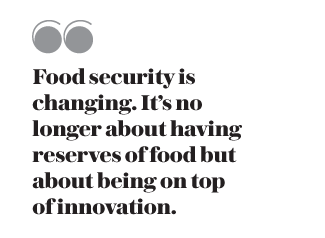
There are more than 20,000 species of edible plants in the world yet fewer than 20 species now provide 90 percent of our food, according to recent studies.
With that in mind, Tetrick set up a technology platform that looked at plants’ molecular properties to find out which species unlocked certain properties in different foods, such as mung beans for eggs, or using a cow’s cells to produce meat.
“We identify cells from animals around the world and get cells from them. We identify nutrients to enable those cells to grow and (we) grow it much faster to be able to manufacture meat in the city, which creates jobs, innovation, strengthens the environment and gives people good-tasting food. The Gulf is in a good position to do that,” he said.
The company’s interest was in finding plants that could produce good food thanks to their health, sustainability impact and potential. To achieve that, Just used its lab to add water, sugar, amino acids, lipids, vitamins and minerals as nutrients for the cells. Its first product was mayo, made with a yellow split pea. Meat, seafood and chicken were next, using animal cells.
Following discussions with business leaders, major food manufacturers and investment partners, the company is seeking to bring its technology to the Kingdom, to create a healthier and more sustainable food ecosystem.
“Saudi imports about 50 percent of its meat from Brazil, which is incredibly inefficient for many reasons, and it’s not secure. It purchases land for its animals outside of Saudi and pays for security to protect that land. It would be better for it to secure its own food supplies and export modern technologies outside to the Gulf Cooperation Council and to Europe — why should it be reliant on other countries when it has the ability to innovate?” Tetrick said.
Just is also scouring the Gulf to find a base in the region, with the Kingdom high on its list of possible destinations.
“Food security across the Gulf is alarming,” Tetrick said. “But Saudi Arabia is among a few countries in the world, such as China, that are well positioned to use the urgency of food security to create an entirely new industry.”
However, with no regulations in place for this area of food production, the road ahead is still challenging.
“Most of the meat we will eat in the future will require technology, capital and regulations. We’re talking with governments around the world about regulations. Getting that right is a necessary component to feed the world in a way that works,” he said.
Saudi Arabia is increasingly focusing on initiatives to ensure more of its food is secure. Last month, the country signed a $93 million agreement with the UN Food and Agriculture Organization (FAO) to renew a long-standing relationship and to redouble joint efforts to implement the country’s Sustainable Rural Agricultural Development Program.
The agreement, which aims to boost production, processing and marketing of Arabic coffee, beekeeping, fruit, fish, livestock, and cultivation of rain-fed crops in the Kingdom, puts the country among FAO’s top resource partners, and number one in the Near East.
“We hope the program boosts food security in the Kingdom and creates employment for young men and women,” said Abdulrahman bin Abdulmohsen Al-Fadley, Saudi Arabia’s minister of environment, water and agriculture. “We also hope it will increase the income of families and households, and lead to an increase in GDP. We have high hopes for this program.”
Although the Gulf might never be 100 percent food secure, due to growing populations and difficulties in producing food locally, experts say that the region can reduce its dependence on imports by developing innovative strategies to encourage local production.
“Traditional farming won’t ever work because of the heat and lack of water,” said Jeffrey Culpepper, chairman of UAE-based AgriSecura, which provides sustainable solutions for food security purposes.
“Greenhouse-type strategies that grow food all year around will reduce some of the food security problems. But Saudi Arabia now understands the magnitude of the problem as it looks at its population growth versus its ability to import.”
Culpepper said that the current system worked because trade routes were uninterrupted, but any form of regional conflict in the future could cause severe disruptions. “Most of the food comes by bulk from ships through the Straits of Hormuz, while specialty food comes by air. That’s where the chokepoint is because the only other access would be from the Red Sea, then trucked all the way across the Arabian Peninsula, so it would cause significant disruptions.”
That message was echoed by Tariq Al-Wahedi, CEO of Agthia Group, which works with animal feed, grains and flour, who warned that any country could be left exposed due to an unstable political situation.
“It’s very important for us to understand that food security is dynamic and ever-changing because it is linked to technology,” he said on the sidelines of Gulfood in Dubai last month.
“We have to keep an eye on technologies and how they emerge. We have all heard about how meat production is shifting from the normal farm to labs, and this is a game-changer.”
Al-Wahedi suggested that city farming held the key to future food security in the Gulf. “Farming used to depend on land, but today many countries are relying on vertical farming.
“This is changing the concept of food security. It’s no longer about having reserves of food but about being on top of innovation and technology, and (being) able to foresee what’s coming in our role as industry leaders,” he said. “Innovation now gives us an edge and a better life.”





